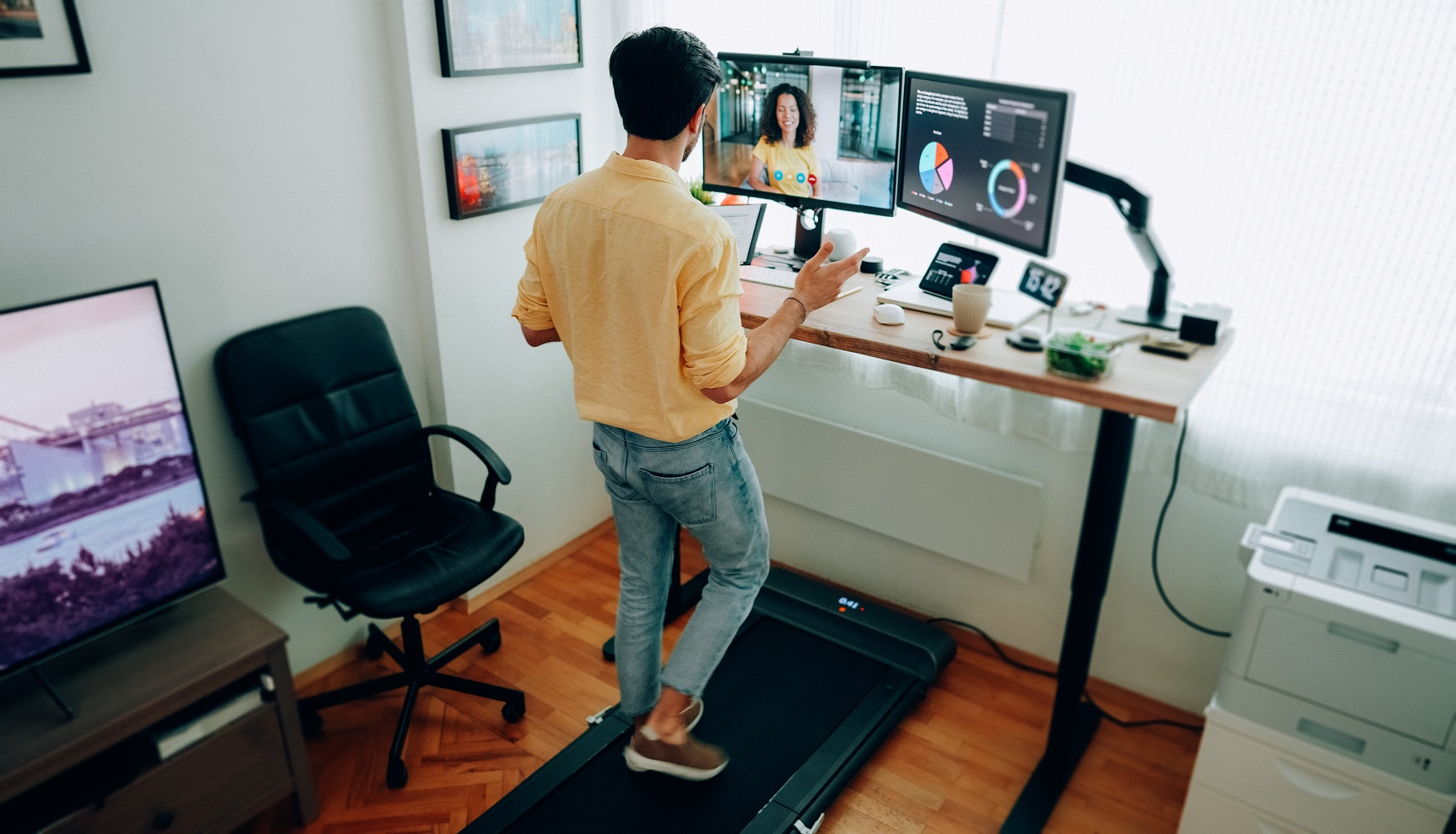For adults on the autism spectrum, navigating adulthood can come with unique challenges...
Read More
Working from home offers flexibility, but it also comes with its own set of challenges. Without the structure of an office, it’s easy to fall into habits that can negatively affect your physical and mental well-being.
Fortunately, with a few simple adjustments, you can create a work environment that promotes health, productivity and balance. Here are some tips to help you stay healthy while working from home:
Setting up an ergonomic workstation can prevent strain and injury. Start by ensuring your desk and chair are at the right height. “Your feet should rest flat on the floor, and your arms should form a 90-degree angle when typing,” said Aiysha Ansari, M.D., a physician at Inspira Medical Group Urgent Care and Occupational Health. “Your screen should be at eye level to avoid neck strain, and your chair should support your lower back.” Consider using a sit-stand desk to alternate between sitting and standing throughout the day.
Sitting for long periods can cause muscle stiffness and decrease circulation. Set a timer to remind yourself to get up every 30 minutes. Even a short walk around your home or a few simple stretches can make a big difference in how you feel throughout the day. These breaks also help clear your mind, improving focus and productivity.
Drinking enough water is essential for overall health. “Keep a water bottle near your work area as a visual reminder to stay hydrated,” said Dr. Ansari. “Dehydration can lead to fatigue, headaches and difficulty concentrating.” Drink water regularly throughout the day and limit caffeinated beverages, as they contribute to dehydration.
One of the biggest challenges of working from home is maintaining a clear divide between work and personal life. Set specific work hours and stick to them. When your workday ends, separate yourself from your workspace by closing your laptop, stepping away from your desk or moving to another room. Creating a routine helps you mentally transition from work mode into relaxation mode, which is essential for your well-being.
Exercise is crucial for both physical and mental health. “You don’t need a gym membership to stay active—simple activities like yoga, stretching or a walk around your neighborhood can help keep you moving,” said Dr. Ansari. “Consider adding movement into your day, such as a morning stretch routine or a mid-afternoon walk, to break up long hours of sitting.”
Working from home can blur the lines between your personal and professional life, leading to stress and burnout. Managing stress is key to staying healthy. Practice mindfulness, deep breathing exercises or meditation to reduce stress. Taking time each day to relax can help you stay centered and energized.
Your sleep quality significantly impacts your physical and mental health. Create a consistent bedtime routine, going to sleep and waking up each day around the same time. Limit screen time before bed and aim for 7-9 hours of restful sleep each night. A good night’s sleep can improve mood, cognitive function and overall energy levels.
Working from home can feel isolating, and staying connected with colleagues, friends and family is vital. Regular video calls or chats with coworkers can maintain a sense of camaraderie, and taking time to socialize and engage with loved ones helps boost your overall mood.
With the right balance of ergonomics, movement and boundaries, you can enjoy the benefits of working from home while keeping your body and mind healthy.

For adults on the autism spectrum, navigating adulthood can come with unique challenges...
Read More
Occupational therapy helps people with injuries, illnesses, and disabilities regain and retain their...
Read More
"Employers know your overall health and well-being is crucial to their success. Workplace health and...
Read More
The material set forth in this site in no way seeks to diagnose or treat illness or to serve as a substitute for professional medical care. Please speak with your health care provider if you have a health concern or if you are considering adopting any exercise program or dietary guidelines. For permission to reprint any portion of this website or to be removed from a notification list, please contact us at (856) 537-6772